Four Ways Ignition SCADA Speeds Development
How The New SCADA Helps You Build More in Less Time
10 minute read Download PDF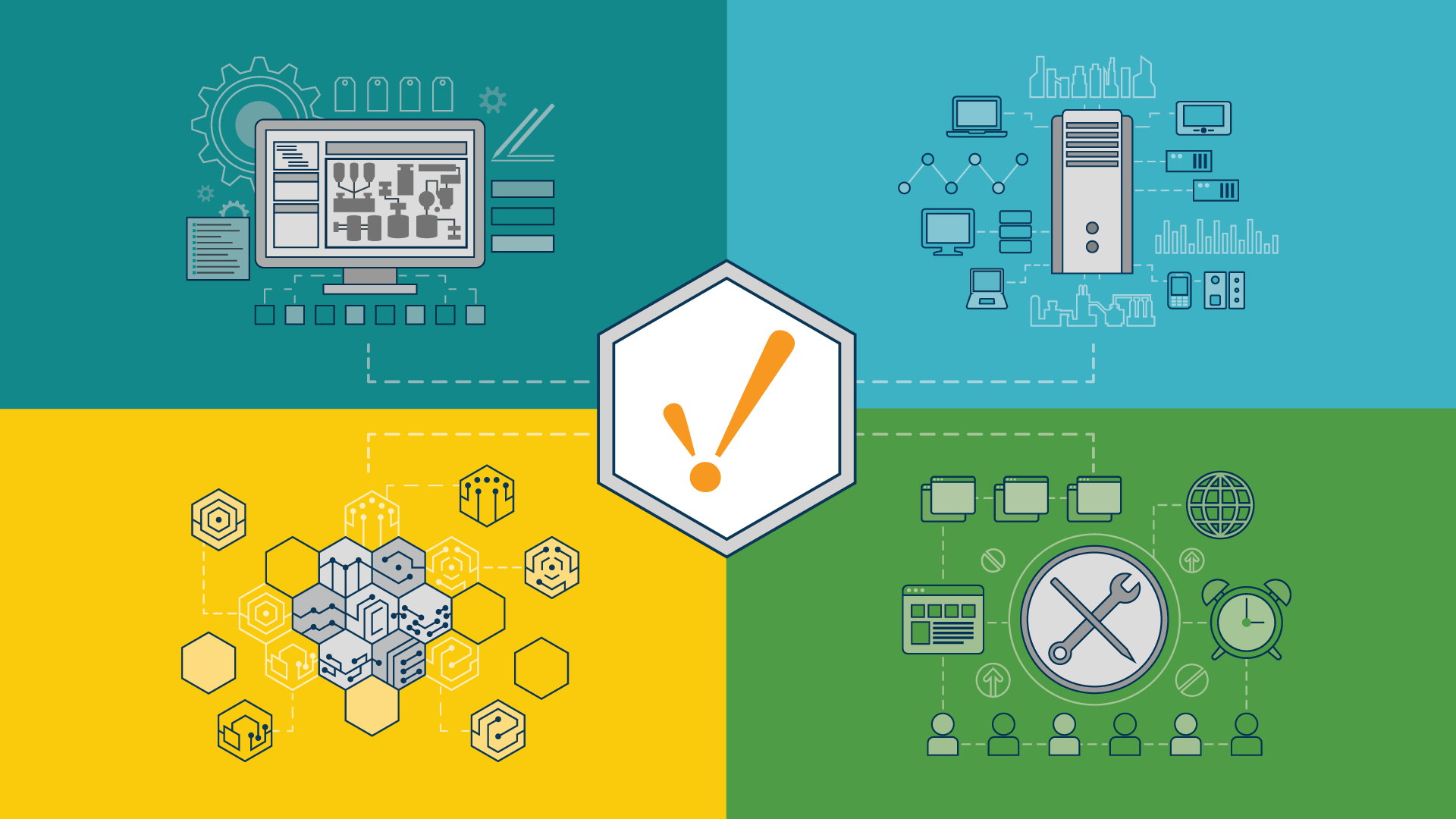
Have you ever been trapped in ‘development hell’?
The phrase is used in the film industry to describe movies that languish for years in pre-production before ever being filmed. But many people who work in other industries can relate to it – especially those who’ve developed software applications.
Modern technologies offer many promising possibilities for your enterprise, but the actual process of development can feel endless and painful, especially for those who aren’t trained as software developers.
One thing that old SCADA (supervisory control and data acquisition) software does well is make development relatively simple for non-programmers. Most SCADA designers have rapid application development (RAD) capabilities that allow you to design in a visual and intuitive manner. If, for example, your company’s quality department wants an easier way to track quality samples, you can quickly go into a SCADA designer and create a trending graph to meet their needs.
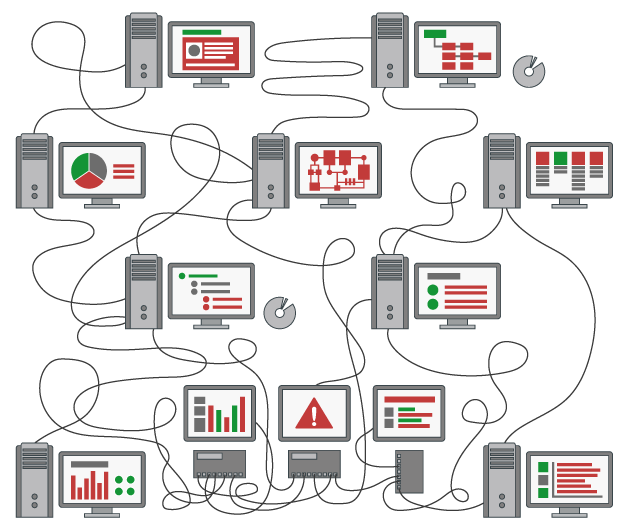
Unfortunately, old SCADA is too limited to be an effective development solution across the enterprise. SCADA’s pay-by-the-tag licensing and convoluted deployment models make it untenable for many organizations. Old SCADA hinders innovation because it’s based on 90s-era technology, it doesn’t interface well with databases, and it’s usually tied to Windows operating systems.
What many enterprises have not yet discovered is that there is a new SCADA solution that removes those limitations and provides the ability to develop applications for the plant floor and every other part of the enterprise.
Four Ways to Speed Up and Simplify Development
Inductive Automation has invented a platform called Ignition that cross-pollinates SCADA’s drag-and-drop simplicity with the straightforward licensing and deployment of IT. On the surface, Ignition may look primarily like software for HMI (human machine interface), SCADA, and MES (manufacturing execution system), but it’s more fully described as software for building software. Ignition is such a major departure from old SCADA licensing, deployment, and technology that it occupies its own category as The New SCADA.
Ignition is built to make development affordable and practical. It includes four distinctive features in particular that allow you to quickly build any type of solution your enterprise needs. Those features are: RAD tools, a uniform design experience, a modular architecture, and seamless connectivity. Let’s examine how each of these features streamlines the big task of development.
1. RAD Tools
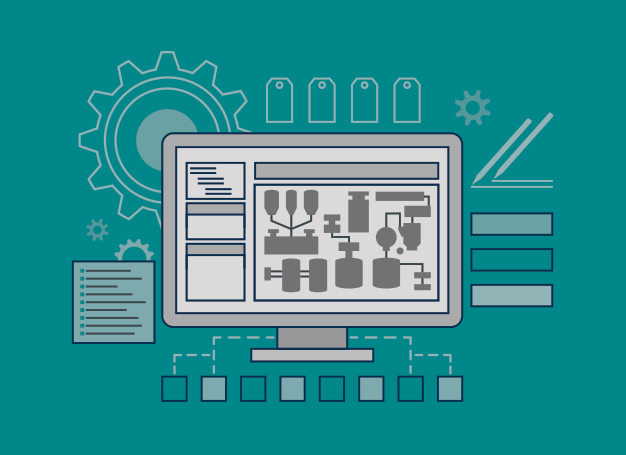
The rapid application development (RAD) tools in Ignition are its included Designer application, object-oriented development environment, drawing tools, and powerful scripting engine. These tools save time, and make it simple to create dynamic projects for SCADA and other needs.
If you have little or no knowledge of scripting, making a screen can seem daunting. But with the Vision Module installed in Ignition, even a relative novice can use windows, components, and templates to build projects. You can open a window and begin dragging and dropping in components such as lines, shapes, buttons, tables, charts, and more.
If you need to make an HMI screen with water tanks on it, you can select pre-configured components to represent the tanks. There are also many pre-configured components for pipes, pumps, and other objects you’d see in a manufacturing environment. You can also easily create vector drawings and animations, and import graphics by dragging them onto the workspace.
You can also save time by reusing components and templates across separate windows. If you decide to change the design of a template, the change you make will be automatically reflected in all uses of that template across all windows. Once your visual elements are in place, you can make them active by binding the properties of the components to information in the real world, such as tags, other components’ properties, SQL-query results, and more.
Also, Ignition has a built-in Python scripting engine that enables you to use graphical script builders, which you can use to create a whole project by pointing and clicking instead of writing script. For example, you can use script builders to set up event handlers (which dictate how the system should respond to mouse clicks, changing properties, etc.) without having to script them out.
If you know how to write scripts and need to use them for a specific project, you can still do this in Ignition. In fact, you can create script modules that allow you to write blocks of code once and then use them anywhere. You can also combine scripting with drag-and -drop design. However you want to approach your project, Ignition makes it faster and easier.
2. Uniform Design Experience
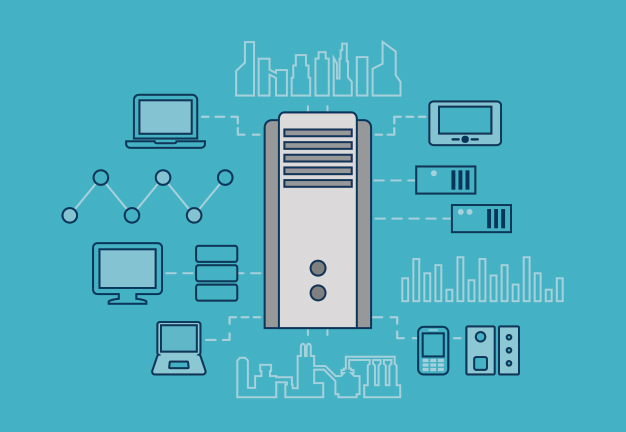
Let’s look a little closer at one of Ignition’s RAD tools: the Designer application. The web-launched Ignition Designer is a major differentiator from other HMI/ SCADA software packages, which tend to have design applications which are overly restrictive or complex, or that require you to purchase individual licenses for each design client. What makes the Ignition Designer remarkable is the way it provides a uniform design experience – one space where you can design anything.
Usually, when a controls engineer is designing a project in old SCADA, he will have to switch between many different windows, such as a designer for templates, another designer for windows, a deployment application, a licensing application, a graphic-terminal application, and so on. Working in different applications is much more straightforward with the Ignition Designer, because you can literally design in different applications without ever having to leave the Designer window.
One of the drawbacks of designing in old SCADA is the inability to use more than one designer client simultaneously. The Ignition Designer, however, provides unlimited design clients and supports concurrent development, so that multiple developers can work on the same project at the same time. Concurrent development gives you many ways to work on a project. For example, you could configure an alarm notification pipeline in one designer, and go into sequential function charts (SFCs) in another designer, and easily switch back and forth between the two.
The Ignition Designer is the only SCADA designer in the world that provides a single environment for working on separate designers, applications, and modules. It provides a fluid experience that makes designing a project infinitely less convoluted and time-consuming.
3. Modularity

As we look deeper into the Ignition platform, we see another characteristic that distinguishes it from traditional SCADA: its modular architecture. It was built to support an unlimited number of modules, each of which is built on the Ignition platform. You can plug a new module into Ignition and it will integrate seamlessly into the system to provide new features like designer workspaces, gateway settings, drivers, and much more.
With the broad range of modules that you can add to Ignition, you can build any kind of HMI, SCADA, or MES system, or even one that stands outside of those standard categories. Many of the most commonly used features of Ignition are actually provided by different modules; for example, the connectivity between OPC data and SQL databases is provided by the SQL Bridge Module, and Ignition’s web-launched HMI/SCADA clients are made possible by the Vision Module.
The modular architecture of Ignition helps it run smoothly and is also very beneficial from a development standpoint because you can install, remove, and upgrade modules without affecting other parts of the system and causing a setback.
Because there is a lower level of risk, you have more freedom to experiment. You can add a new module to your system, and if it doesn’t work for your needs, you can simply remove it and still be assured that the underlying platform will continue to run properly. The fact that the modules are built on a common platform means there will be fewer bugs and greater stability overall than other SCADA systems. In the long run, Ignition’s modularity makes expansion simple and affordable rather than impractical and expensive.
4. Seamless Connectivity
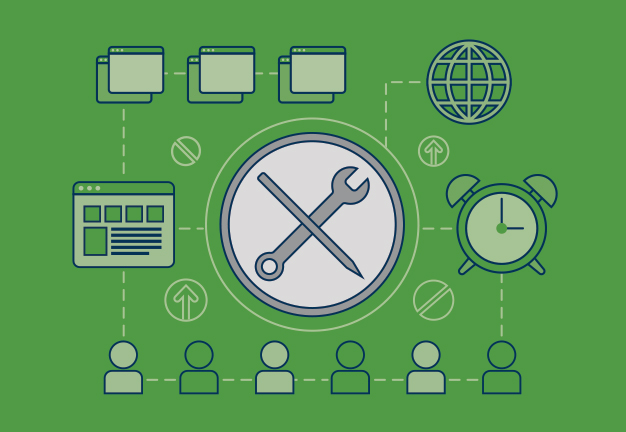
Ignition has seamless connectivity between the various modules that plug into its unified platform. It also connects seamlessly with other programs, devices, and databases.
Elements such as Java, OPC-Unified Architecture (OPC-UA), and SQL database connectivity make Ignition a seamless, cross-platform presence across the enterprise. With Java and SQL databases, which are commonly used by IT departments, Ignition enables advanced data management, processing, and reporting. Ignition has broken new ground as the first SCADA software built entirely on Java, which makes it cross-platform compatible and easily web-deployable.
Because it can put PLC data into SQL databases, Ignition makes that data readable by other systems in the enterprise. This means that controls information can easily be layered with information from other areas of the enterprise, such as ERP (enterprise resource planning) data. Its connectivity with SQL databases also empowers you to ask questions of PLC data. These capabilities open up innumerable opportunities to improve efficiency and profitability.
OPC-UA is the automation industry’s standard cross-platform framework for accessing real-time and historical data, and when Ignition has the OPC-UA Module installed, it has OPC-UA server and client functionality. This allows Ignition to connect with multiple control networks, easily integrate new hardware, connect to local and remote PLCs, and support connections to any number of compliant third-party OPC-UA servers.
These elements within Ignition allow you to connect all of the systems in your enterprise, from SCADA to ERP. Data can be integrated seamlessly from the plant floor up to the executive offices. You can build any sort of automated system for any department. Instead of trying to get by using a prepackaged solution or trying to make incompatible programs work together, you can build what you need and build it quickly.
Ignition doesn’t limit you to building HMI, SCADA, or MES projects. You could use it to develop your own customer relationship management (CRM) system. You could log data from various sites to a central location, or directly update plant-floor information to the ERP, or move data out of isolated databases, or set up a more manageable alarming system, or make an easily accessible document management system, or make your factory paperless – the possibilities are basically endless.
Whether you need to build an application for handling PLC data or helping with HR paperwork, you are free to think enterprise-wide with Ignition. Your technology can be more connected, which means your people can be more connected as well.
From Endless Development to Endless Possibilities
As The New SCADA, Ignition is built with modern, IT-friendly technologies and server-based licensing that comes with unlimited tags, clients, and connections. Its rapid development tools including the Designer, its modular architecture, and its seamless connectivity make it an ideal development tool not just on the plant floor but across your enterprise.
Ignition also shortens development time by allowing you to spend much more time defining your project and less time implementing it. Once you’ve defined exactly what you want the project to accomplish, you can build it fast. It can be built in days or weeks, instead of months. That way, there is less chance that the requirements for the project will change during development. Or, if you need to go back and change the project definition, you can do so without essentially tossing out weeks or months of work.
If you’ve ever thought about something you would like to build if only you weren’t blocked by costs, risks, time commitments, or technical hurdles, Ignition gives you the chance to go for it. It offers all the tools necessary to develop projects in a very fluid and viable way. The development process doesn’t need to feel endless or tortuous; it can be fast and even enjoyable. And when you rediscover the passion for building, innovation is bound to follow.
Want to stay up-to-date with us?
Sign up for our weekly News Feed.
